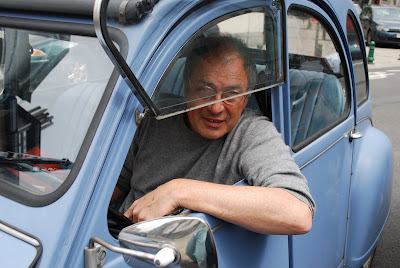Afropop contributor Kenneth Routon checks in with Belgian musician/composer and mastermind behind the Crammed Discs series 'Congotronics.'
Kenneth Routon: In 1983, you participated in the recording of Zazou Bikaye’s Noir et Blanc, one of the first recordings to fuse traditional African music with European electronica, which someone described as, “Fela Kuti-meets-Kraftwerk.” Did you intentionally set out to create this kind of musical hybrid?
Vincent Kenis: Almost all credits for this album must be given to Hector Zazou; it was Zazou who had the brilliant idea to put Congolese singer Bony Bikaye in contact with hardcore analog-synth freaks CY1. I'm not sure Zazou had foreseen to which point that encounter would be fruitful, the fact is that only a musician as gifted as Bony Bikaye, who was at the same time a product of the exceptionally fertile modern music of his home town Kinshasa and an recipient of the rich polyrythmic and polyphonic tradition from Central African music, could have not only found his way into the dauntingly irregular rhythmic structures created by CY1 from scratch in the studio (the sequencers were totally unreliable and unpredictable then), but even use these structures as a basis to improvise songs on the spot... it worked beyond anybody's expectations. Zazou also wrote the horn arrangements on the spot. I improvized some bass and guitar parts (BTW my part in 'Djuya Feza' was intended to sound a bit like Konono N°1, which I had discovered some time before through the recordings of Bernard Treton) and some dub and scratch effects. I also assisted Gilles Martin and Marc Hollander for the mixing.









